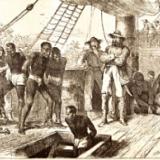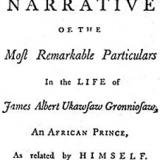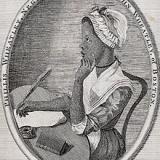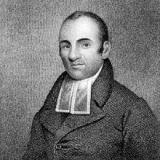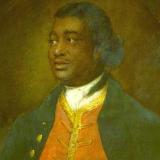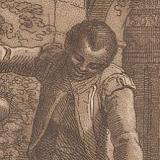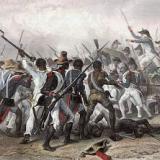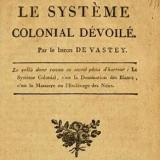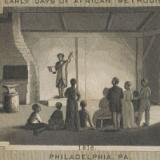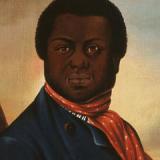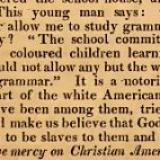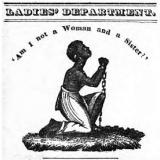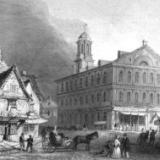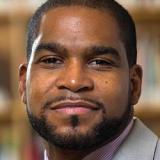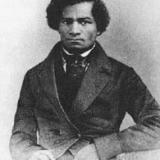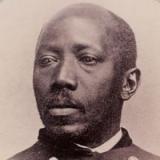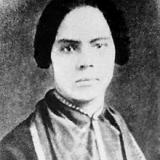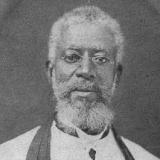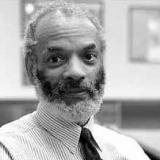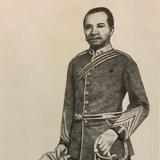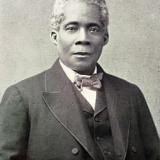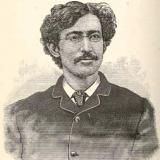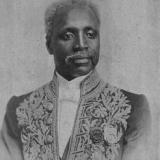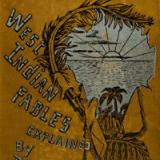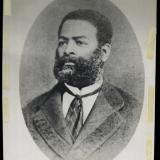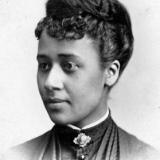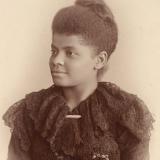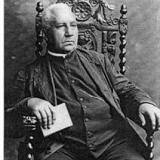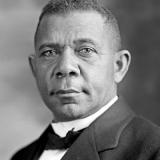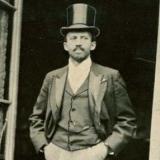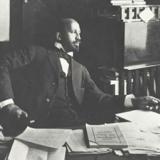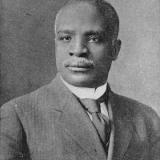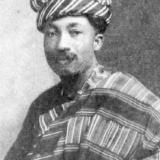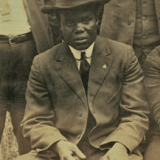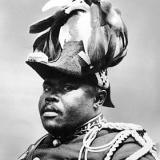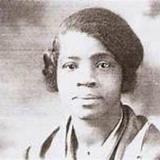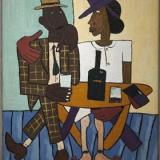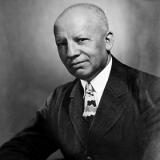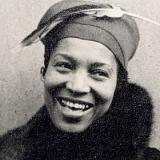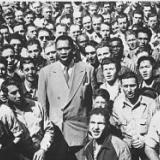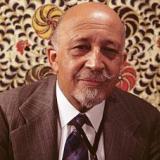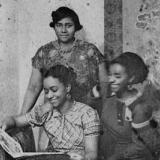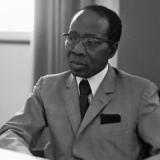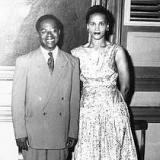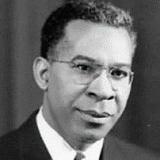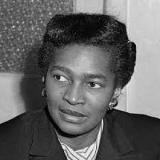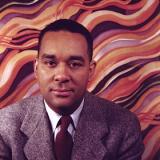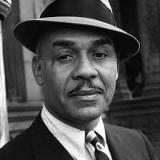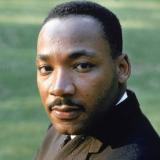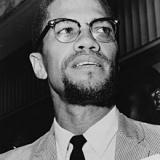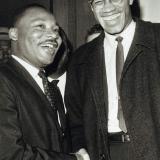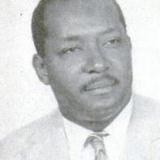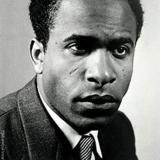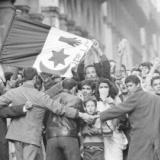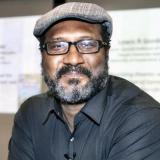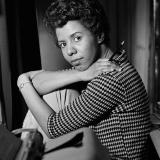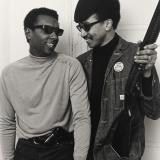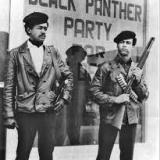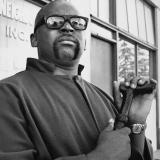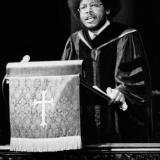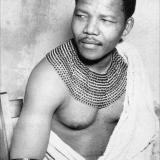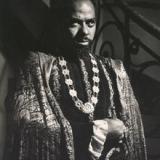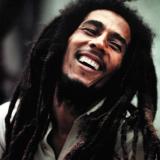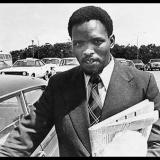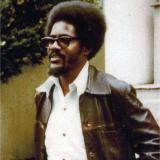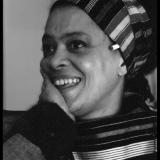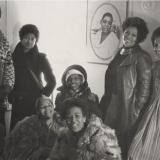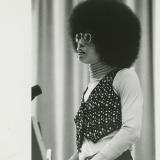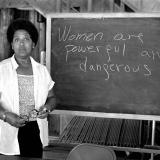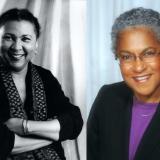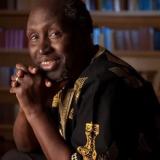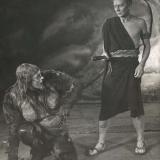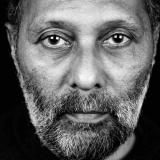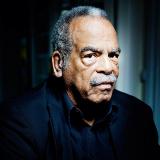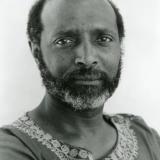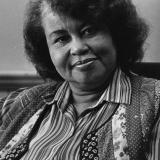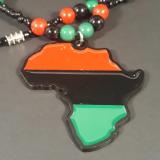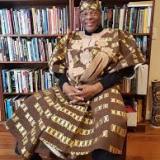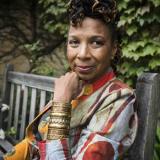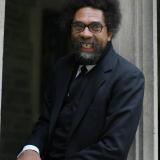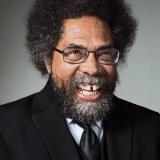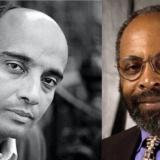Race and Racism
Posted on
An introduction to Africana philosophical thought as it emerged from the modern experience of slavery and colonization by Europeans.
Posted on
Justin E.H. Smith joins us to discuss Anton Wilhelm Amo against the background of ideas about race in early modern philosophy, including Leibniz.
Posted on
Eighteenth century black authors touch on philosophical themes in autobiographical narratives, poetry, and other literary genres.
Posted on
Phillis Wheatley astonishes colonial Americans with her exquisite and precocious poetry and reflects on the liberating power of the imagination.
Posted on
Preacher and Revolutionary War soldier Lemuel Haynes argues that the principles of the American Revolution demand the abolition of slavery.
Posted on
Ignatius Sancho and Benjamin Banneker make their mark on the history of Africana thought through letters that reflect on the power of sentiment.
Posted on
Quobna Ottobah Cugoano and Olaudah Equiano advance the goals of the abolitionist movement through a groundbreaking political treatise and an influential autobiography.
Posted on
In an age of revolutions and revolutionary ideas, the Haitian Revolution of 1791-1804 stands out as the most radical of them all.
Posted on
The Baron de Vastey unveils the horror of colonialism as a system and defends the monarchy of King Christophe in the tense early years of Haiti’s independence.
Note: this episode repeats some of Vastey's vivid descriptions of violence against slaves, so please think twice before listening to it around kids for example.
Posted on
An interview with Doris Garraway on the background, intellectual basis, and legacy of the Haitian Revolution.
Posted on
Building black institutions in early American history, with Prince Hall and the Masons in Boston, and Richard Allen and the Methodists in Philadelphia.
Posted on
Questions of political autonomy and group identity in the emigration movement led by Paul Cuffe, Daniel Coker, John Russwurm and others.
Posted on
An interview with James Sidbury about the emergence of a self-conscious African identity in the diaspora.
Posted on
David Walker defends violent resistance in his incendiary and influential Appeal.
Posted on
Maria W. Stewart’s public addresses bring the concerns of African American women into the struggle against racial prejudice.
Posted on
Hosea Easton’s Treatise provides an overlooked but fascinating theory of race and racism.
Posted on
Melvin Rogers joins us to discuss David Walker, Maria Stewart, and Hosea Easton.
Posted on
Frederick Douglass' journey from slave to leading figure of 19th century American thought.
Posted on
He is called a “father of black nationalism,” but Martin Delany also promoted integration in American society. Can the apparent tension be resolved?
Posted on
Mary Ann Shadd and Samuel Ringgold Ward reflect on what Canada can offer African Americans, differing on the problem of racism.
Posted on
From his time in Liberia to his later concentration on the reform of African American culture, Alexander Crummell identifies progressive “civilization” as a means of liberation.
Posted on
Wilson Moses speaks to us about his research into early black nationalism, with reference to Crummell, Douglass, and others.
Posted on
Africanus Horton looks toward a future of self-government for West Africa beyond slavery and colonialism.
Posted on
Edward Blyden gains appreciation for Islam in West Africa and gradually moves from political nationalism to cultural nationalism.
Posted on
T. Thomas Fortune uses newspaper editorials to put forth a theory of civil rights and sets out a plan of political action for protecting them.
Posted on
Haitian anthropologist Anténor Firmin debunks racist pseudo-science and argues that inequalities among humans are caused by social, not biological, factors.
Posted on
John Jacob Thomas argues for self-government in the English colonies of the Caribbean but his fellow Trinidadian Frederick Alexander Durham recommends repatriation to Africa instead.
Posted on
Abolitionists Luiz Gama and Joaquim Nabuco, and the great novelist Machado de Assis, react to the injustices of slaveholding in Brazil.
Posted on
Anna Julia Cooper’s A Voice from the South, an unprecedented contribution to black feminist theory.
Posted on
Ida B. Wells, her tireless crusade against lynching, and her analysis of the underlying purpose of racial violence
Posted on
Brittney Cooper on activists connected to the National Association of Colored Women, including Fannie Barrier Williams, Mary Church Terrell, and Ida B. Wells.
Posted on
A late 19th-century churchman tries to explain how slavery fit into God’s plan and decide whether the future for African Americans lies in Africa or America.
Posted on
Was Booker T. Washington’s “accommodationist” approach to race relations a failure to stand up to injustice or a cunning strategy for incremental change?
Posted on
W.E.B. Du Bois emerges as a historian, sociologist, and innovative philosophical thinker in the 1890s, and introduces his famous idea of "double consciousness."
Posted on
Co-host Chike joins Peter to look back at series two and ahead to series three.
Posted on
By exploring the work and activities of W.E.B. Du Bois around the turn of the twentieth century, we introduce some of the themes of our coverage of that century.
Posted on
The ANA unites leading African American scholars of the early 20th century, including W.E.B. Du Bois, Paul Laurence Dunbar, William Ferris, Archibald Grimké, and Kelly Miller (pictured).
Posted on
We chat with Tommy Curry about African-American thought between the turn of the century and the Harlem Renaissance.
Posted on
West African intellectuals like J.E. Casely-Hayford (pictured) and Mojola Agbebi build upon Edward Blyden’s ideas at the dawn of the twentieth century.
Posted on
Around the time of World War One, Hubert Harrison (pictured), A. Philip Randolph, and other black socialists argue that racial oppression is caused by capitalism.
Posted on
Vanessa Wills speaks to us about Marx and his Africana legacy, with a special focus on black women Marxists.
Posted on
Marcus Garvey leads a powerful movement, inspires racial pride, and feuds with other thinkers like Du Bois.
Posted on
Marcus Garvey’s two wives, Amy Ashwood Garvey and Amy Jacques Garvey (pictured), establish themselves as activists in their own right and provide feminist voices within the Pan-African movement.
Posted on
An interview with Michael Dawson, who explains Marcus Garvey's black nationalism and how this and other political ideologies, like socialism and liberalism, have fared from the time of Garvey down to the present day.
Posted on
The artistic flowering of the 1920s known as the Harlem Renaissance raises important questions about identity and the purpose of art.
Posted on
Pioneering historian Carter G. Woodson argues for a new approach to education and economic uplift.
Posted on
Zora Neale Hurston’s interest in Africana folklore feeds into her great novel Their Eyes Were Watching God.
Posted on
The career of the multi-talented activist and performer Paul Robeson, and the place of the Negro spiritual in the Harlem Renaissance.
Posted on
Du Bois moves to the left, and revisits and refines older positions during the latter half of his very long life.
Posted on
Our first look at the emergence of the Negritude movement in Paris in the 1930s, with a focus on the early leadership of the Nardal sisters and Leon Damas.
Posted on
Leopold Senghor compares different ways of knowing while developing his theory of Negritude and combining the roles of poet and politician.
Posted on
Negritude thinkers Aimé and Suzanne Césaire embrace surrealism and reflect on the relationships between poetry, knowledge, and identity.
Posted on
Two Trinidadian political thinkers: sociologist Oliver Cox analyzes the nature of racial prejudice, and historian Eric Williams connects capitalism to slavery.
Posted on
Claudia Jones argues that Communism provides the remedy for racism and imperialism.
Posted on
Famous for his incendiary novel Native Son, Richard Wright responds in his multifaceted writings to sociology, communism, colonialism, and existentialism.
Posted on
Ralph Ellison provides a new metaphor for the experience of racism in his Invisible Man and tackles topics of art and identity in his essays.
Posted on
The story of Martin Luther King Jr. up to 1963, focusing on the development of his philosophy of nonviolence.
Posted on
An interview about the role of the emotions, including anger and feelings of dignity, in the non-violent protest campaign of King.
Posted on
The life and career of Malcolm X up to 1963, with a focus on his separatist black nationalism and his critique of non-violent protest.
Posted on
Chike joins Peter to look back at our coverage of Africana philosophy in the first half of the 20th century.
Posted on
After 1963, the views of Malcolm X and MLK came closer together, on topics including internationalism, political engagement, and economics.
Posted on
The Cuban activist and author Juan Rene Betancourt urges racial solidarity and reckons with the revolution under Castro and the island’s turn towards Communism.
Posted on
Frantz Fanon combines psychoanalysis and existential phenomenology to diagnose neuroses deriving from the colonial condition.
Posted on
Fanon’s incendiary final work explores the violent process of decolonization.
Posted on
We're joined by a leading Fanon expert to talk about a range of themes in his work: Negritude, psychiatry, and violence.
Posted on
The author of the famous play, A Raisin in the Sun, explores questions of violence, sexuality, and more during her too brief life.
Posted on
How the controversial slogan “black power,” used by activists like H. Rap Brown and Stokely Carmichael (pictured), relates to ideas of militancy, separatism, and the power of language.
Posted on
The philosophical underpinnings of a “vanguard of revolution” led by Huey P. Newton, Bobby Seale, and Eldridge Cleaver: the Black Panther Party.
Posted on
The Pan-Africanist philosopher Maulana Karenga defends the importance of cultural revolution and invents the holiday Kwanzaa.
Posted on
After Albert Cleage and James Cone propose a liberatory interpretation of Christianity, William R. Jones wonders whether God is a white racist. We also follow Black Theology among “Womanist” authors and in South Africa.
Posted on
The career and ideas of Nelson Mandela up to the time of his imprisonment, in the context of the founding of the African National Congress.
Posted on
Abdias do Nascimento, a leader in Brazilian theater and politics, and his theory of Quilombismo.
Posted on
Sun Ra and Parliament-Funkadelic return to claim the pyramids, and Octavia Butler uses science fiction to confront the brutal past of slavery.
Thanks to Stephan Terre for the creation of the futuristic intro music!
Posted on
How the Rastafari movement grew from trends within Africana philosophy, and then passed into global popular culture in the music of Bob Marley and other reggae artists.
Posted on
Famous for his killing at the hands of the Apartheid government in South Africa, Steve Biko was also a deep thinker, who introduced the notion of Black Consciousness.
Posted on
Pan-Africanist and Marxist historian Walter Rodney rethinks Black Power, engages with Rastafari, and opposes racial division in his home country of Guyana.
Posted on
Toni Cade Bambara, the Combahee River Collective, the Brixton Black Women's Group, and Awa Thiam critique white feminist and black nationalist failures to recognize the unique struggle of the black woman.
Posted on
Toni Morrison, Alice Walker, and Maya Angelou explore the themes of black feminism (or “womanism”) in their fiction.
Warning: this episode contains discussion of sexual violence and suicide.
Posted on
The eventful life and penetrating philosophy of Angela Davis, an icon of resistance deeply informed by Marxism and influential on black feminist thought.
Posted on
In poetry and prose, especially her collection Sister Outsider, Audre Lorde explores ideas of difference, eroticism, and feminist theory.
Posted on
We bring the story of black feminism up to the turn of the century with the incisive works of bell hooks and Patricia Hill Collins.
Posted on
How one of Kenya's greatest writers came to argue that African literature should be written in African languages.
Posted on
Can Shakespeare’s Tempest be read as a reflection on the English encounter with the peoples of the Americas?
Posted on
Stuart Hall pioneers “cultural studies,” offering tools for analysis of films, television, fiction and music that were put to use by followers like Paul Gilroy and Hazel Carby.
Thanks to Glenn Adamson for his feedback on this episode!
Posted on
Poet, novelist, playwright and philosopher Edouard Glissant, his theory of "creolization", and the Creolists who were influence by him.
Posted on
The author of an important book on Glissant joins us to talk about his approach to this major Caribbean thinker.
Posted on
Cedric J. Robinson reflects on the power and limitations of Marxism while charting the past and prospects of black radical thought.
Posted on
Sylvia Wynter offers a bold and provocative assessment of the role of the humanities in understanding humankind.
Posted on
Writers like George G.M. James, John Henrik Clarke, Cheikh Anta Diop, Yosef ben-Jochannan, and Chancellor Williams prepare the way for the Afrocentricity of Molefi Asante and capture the imaginations of hip hop artists and intellectuals like Ta-Nehisi Coates.
Posted on
What inspired Asante's philosophy of Afrocentricity, and its relationship to religion, nationalism, and feminism.
Posted on
A movement of legal scholars diagnoses the limitations of merely “formal” measures against discrimination, a point they connect to issues like affirmative action, democratic process, and intersectionality.
Posted on
An introduction to the thought of Cornel West, focusing on his early essay “Philosophy and the Afro-American Experience.”
Posted on
Cornel West joins us to look back on the development of his thought and the many authors who have inspired him.
Posted on
The key events and figures in philosophy as an academic discipline, in both Africa and the diaspora, from the 1970s to the 1990s.
Posted on
How Africana philosophy looked to a young Chike Jeffers, coming into the field in the early 21st century.
Posted on
In this interview we learn about the main issues in modern-day philosophy of disability, and the relevance of this topic for the European encounter with the Americas.

